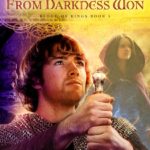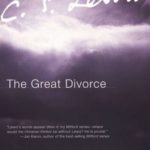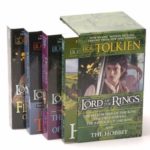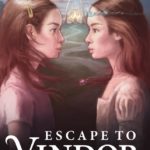Please Stop Writing Fantasy Novels
I have become a caricature to my best friends.
You would think that would bother me, but it actually makes me really happy.
I don’t know if it’s healthy or dysfunctional, but I tend to feel loved when I’m teased by my buddies. I’m not talking about mean-spirited fun, but the kind that prevents me from taking myself too seriously — to reckon with my quirks and delight in what a miracle it is that my family, my friends, and my God choose to walk with me in fellowship.
I go on a Christmas tour every year with a group of pretty incredible musicians and artists who happen to be some of my dearest friends, and it’s become a tradition to print up tour t-shirts bearing our nicknames, most of which have origins too obscure to make any sense to anyone but us: “Chaos,” “Styles,” “Hot Toddie,” and “Nueve,” for example. Jill Phillips, the only female on the tour, got the nickname “Girl” which isn’t so obscure, I suppose. We all have a good time with it, and after all these years the nicknaming makes it feel like we’re old army buddies on a tour of duty.
The reason I tell you all that is to tell you this: my nickname on the tour is “Dragon Sword.” (I just laughed out loud while I typed that.) I have a t-shirt and a head band, both of which display the nickname and announce my giant nerdiness to the world. Of the twelve people on the tour, only one of us is a part-time fantasy novelist, you see, so there’s no end to the happy ridicule. You know those goofy pewter wizards and dragons you see for sale at truck stops? The ones with the little crystal embedded into the wizard’s grip? You know those swords hanging on the wall at the knife shop in the mall? My touring buddies all think I collect those. (I don’t.) They think I’ll read any book if the cover features a dragon, a pirate ship, or a laser gun. (I won’t.) They think I’ve watched all eighty-seven hours of the Lord of the Rings extended editions in one sitting. (I haven’t.) They think I grew up playing Dungeons & Dragons. (I didn’t.) They think I dressed up like Prince Caspian for the Narnia premiers. (Nope.) They think I was the kid in high school always drawing dragons and swords on his folders. (That one’s true, actually.)
When I step on the bus and they yell, “Dragon Sword!” my heart gloweth. It really does crack me up. What I don’t usually tell them is that of the books I’ve read in the last ten years, only a handful would be considered fantasy novels. Of the movies I’ve loved the most, few (if any) had any dragons in them. The paintings I saw by Van Gogh and Leonardo at the National Gallery in Washington, D.C. this summer managed to take my breath away even though there wasn’t an elf in sight.
I’ll be honest — I really do walk through the sci-fi/fantasy section at the bookstore every time I visit; I do the same for the young readers section. I love a great cover illustration. Call me a nerd if you want. But wait! I also walk through the fiction section, and I browse the poetry shelf, and I peruse the art aisle, and (these days) the gardening books. When I visit the library I usually end up with a stack of books about everything from Batman to tree houses to John Adams.
What I’m getting at is that I don’t love only speculative fiction. In fact, I have a deep-seated loathing for most of it.
Then why in Aerwiar am I writing the Wingfeather Saga?
If I loathe most fantasy, why do I adore the Lord of the Rings and the Narnia books? The simple answer is that I care more about good writing than genre. I care more about story than setting. I care more about sentences than swords.
C.S. Lewis, in an essay called “On Stories,” talks about setting, and makes a great case for why it matters. One of his students argues (if I remember right) that a writer could take a story set in, say, the Old West, remove all mention of six-shooters and cattle and old saloons, replace them with swords, steeds, and taverns, and the reader would delight in the story just as much. Lewis, on the other hand, argued that the world the story is set in is integral to the story itself; the delight is in the details. I think of Hogwarts with its moving staircases and floating candlestands; I think of Rivendell with its waterfalls and ancient architecture; I think of Sherlock on the foggy streets of London; I think of a lamppost in a snowy wood. So yes, come to think of it, I do care about setting.
For Lewis, a sense of atmosphere was crucial. But you’ll notice that each of the descriptions I just gave conjure up more than just pictures. They give you a feeling, too. They’re so connected to the story taking place that you can’t divorce the two. The setting, among other things, represents the story to the imagination of the reader — it composts the soil where the story grows. But atmosphere isn’t enough. To follow the soil analogy a little farther, rich soil feeds grass and thistle just as well as it feeds corn and pumpkin. (I know, because I just had to till between my corn rows a few days ago.) If the story isn’t strong, the setting isn’t either. Or, put it this way: the setting is only as strong as the story that fills it.
I get the feeling sometimes, when looking at the hundreds and hundreds of fantasy novels on the shelf at Barnes & Noble, that many of the authors (and publishers) are so geeked out about the accoutrements of fantasy (orcs! dragons! quests!) that they’ve forgotten that the story is the thing. It’s like when my daughter sets her play table for a pretend feast. The cute little napkins, tea cups, forks and knives, and plastic muttons are immaculately displayed on the table, but there’s no actual meal.
As delightful as it can be to imagine food, all it does is make one hungry for dinner. What I mean by dinner, of course, is great writing. And we can’t learn how to be great writers by reading mediocre books. It’s true that one can learn a lot about what not to do by reading bad books, but without a standard by which to measure the bad, we lose sight of what makes great books great. It’s good to cultivate a little bit of literary snobbery, at least insofar as it teaches you to be humble enough to work harder.
Tolkien, the godfather of modern fantasy, didn’t read much speculative fiction. We know, because before Tolkien there was no fantasy genre. Legend has it that Tolkien and Lewis started writing the kind of books they wrote because nobody else was doing it for them. (Of course, we could classify Norse mythology as a kind of imaginative fiction, but you know what I mean.) So what did they read? Classics. Scripture. Poetry. Essays. They were well-versed in ancient verse. They were scholars who studied mythology and language and could wax academic about a host of subjects, in multiple languages. I contend that the reason their books have lasted all these years is that they knew that great books are made of great stories; great stories are made of great sentences; great sentences are made by lovers of words.
So you can put a cool picture on the cover of the book, you can populate your world with all manner of strangeness, and you can even send your characters on a grand quest — but if you don’t love the sound of a beautiful sentence, if you aren’t a student of thematic nuance and story structure, if you haven’t cultivated discernment about what makes good books good, then your readers will know it. People won’t return to your book year after year to re-read passages. Your book will gather dust. Time will out you.
Now would probably be a good time to make a disclaimer: I realize I’m not a great writer. I’ll never write a book as lasting or beautiful as The Lion, the Witch, and the Wardrobe. But that doesn’t mean I shouldn’t try. I’m not a great writer now, but that doesn’t mean I don’t want to be one someday, as unlikely as that is. Being a Christian doesn’t let me off the literary hook — it raises the literary bar (yes, I just mixed metaphors. See? Not a great writer). So what I’m getting at is this: if we want to write great speculative fiction, we have to eat our vegetables. We have to humble ourselves and realize that we have a lot to learn from the Great Ones of the Elder Age. That means you should study the Inklings, of course. But don’t stop there. Read The Adventures of Tom Sawyer. Again. Read To Kill a Mockingbird. Read At the Back of the North Wind. Read King Lear. Read Milton (I haven’t yet, but I plan to this year). Read poetry. For goodness’ sake read poetry! Read it even if you don’t like it — read it especially if you don’t like it. Read Thoreau. Learn what a spondee is, and a poetic foot, and chiastic structure. Read Pulitzer Prize winners, like Annie Dillard’s Pilgrim at Tinker Creek and marvel at sentences doing things you didn’t know were possible. Let Mark Helprin’s exuberant imagination blow your mind.
Then, reader, sit at your desk, take a deep breath, and write your novel. If the story that presents itself to you has dragons in it, then fine. Follow the thrush to the hidden doorway and find your dragon. But don’t just think of it as a fantasy novel. Think of it as a book for the ages. Chances are it will be terrible (I promise you the first draft will be). But don’t let that stop you from working to make something beautiful, from the cover to the paper stock, all the way to the sound of the sentences and the utter absence of every possible adverb.
I don’t think the fantasy genre (or the speculative fiction genre, if you like) will produce anything really lasting until its writers stop writing fantasy and start writing great books that happen to be speculative. I suspect my heart will always leap a little at the thought of a quest in the perilous realm, and as the title of Lewis’s essay stated, “Sometimes a fairy story may say best what’s to be said.” But not always. Sometimes an entirely different kind of story will do. And those are just as worthy of our study, consideration, and enjoyment. In the meantime, I’ll keep wearing my “Dragon Sword” shirt on the tour, and I’ll hide a copy of Crime and Punishment under my pillow, safe from the prying eyes of the band.
I’d hate to disappoint them.












































While I agree fervently with the general point, it really saddens me to see the paragraph that begins with “get the feeling sometimes, when looking at the hundreds and hundreds of fantasy novels on the shelf at Barnes & Noble . . .”
Here we seem to have the hearts and minds, passion, experience and maybe even insight of those hundreds of writers judged by the covers a marketing department sees fit to put on their books–usually without consulting them.
There are enough stones thrown at fantasy writers, as is pointed out so poignantly at the start. I do wish other writers wouldn’t join the mob.
Sherwood,
I must not have been clear with what I was saying. I spend most of my time in the sci-fi/fantasy section marveling at the covers. It’s the covers I love! It’s the books that are usually a let down.
AP
I was wondering where you were going with this; when a story bursts out of me, I don’t stop to think what the genre is and I thought you meant I had to classify it AND stop writing something called fantasy. My heart skipped a beat for a brief moment!
Reading it through, I see that your essay is essentially saying what my experience is – do not write for the market, craft the story that forms within you. I agree. What messes the tale is the constant eye on what sells or what is the in thing.
And I agree about the covers. I sometimes leave the book unopened because the cover promises a lot and I would rather just imagine what’s within. 🙂
Thank you Andrew for holding us to a higher standard. It is Story that is king no matter the genre. I know that some of us may feel uncomfortable with your post but you are right on the money. I love what your brother, Pete said last week, and I’m paraphrasing, about writing a good story and the Christian worldview will come through because is is from this point of view that the author views reality. So concentrate on the Story. Shape it with color and feeling and emotion as Walter Wangerin, Jr. told us last August at Hutchmoot.
In speculative fiction, we populate our worlds with dragons and orcs and elves because in their personalities and characters, we can best tell the story. Jesus told stories with fig trees and seeds cast on stone and pig sties and a rich ruler thirsting for one drop of water. It is the Truth behind the Story that makes the writing live and breathe. Thank you for reminding us of that.
Long live the Dragon Sword! Of course, now I’m dying to know who “Hot Toddie” is!
I think this is the second time I’ve read this. Twas just as lovely. 0=) Thanks much. Genre’s little more than the stage, curtains, and backdrop, I think. And like you, I read mostly non-fantasy titles as well. I’d say more, but…tis all there is.
You like similar stories and novels that I like. I don’t care for poetry but you’ve encouraged me to give it a try.
So where do I start? I have an old Shakespeare tome with his sonnets etc. I love the KJV Bible poetry. Got any casual suggestions?
ig
Great reminder. You have so much going for you simply because you are a poet. Add your faith to that, and it’s no wonder that your opening chapters of On the Edge of the Dark Sea of Darkness are some of the most delightful around.
I’m afraid that many writers today can’t tell important stories, because they are biblically illiterate. It wasn’t so long ago that even nonchristians understood what the Bible said and were influenced by the golden rule and sacrificial love. Now, not only do nonchristians not know what the Bible says, many Christians don’t know either. I think that is part of the reason we have so many thin stories, today.
Ironically, it was my classical world lit prof with a preference for Nietzsche that told all of us to “read the Bible or you’ll never understand Western literature.” Had an intermediate level fiction prof say something similar.
Oh, boy. I would have really enjoyed that essay if I hadn’t been distracted by wondering what Ben Shive’s nickname is.
Seriously, thanks for putting into concise format what my brain has been sporadically hinting to me!
Andrew, thanks much for a great guest spot.
I truly believe that’s the reason why I love some fantasy, not just because it’s fantastic and out-there, but for what it echoes back about God, the world, and myself (right or wrong). That can also be done by another genre of story, perhaps a great contemporary thriller or even more-real-world-based drama. Yet it seems that the best and most epic-visioned stories tend to overlap or completely fall within the scope of more-visionary genres.
I also truly believe this is because of our yearning for what Lewis called Joy, that inward desire that can be felt (though severely misdirected) even by those who hate its Source. Christ has promised to fulfill that longing, and the very physical New Heavens and New Earth, under His loving lordship, will be the world we’ve always dreamed of.
And only in that After-world will the fantastic become real, all for God’s glory and our joy.
I am excited to see someone of faith who is not affraid to write, read and enjoy all forms of the writen word.
Being Greek Orthodox means that The Lord is with us every day, in every aspect of our lives…..but that doesn’t mean that we cannot read bokk that expand our faith through questions and speculations.
Only through questioning will the answers come.
good luck with the tour and your novel.
Oh, and a plug for a Canadian writing duo….Steve Erickson and Ian C. Essilmont.
Thanks again
Beautifully written dear brother but you are kidding yourself if you think the Wingfeather Saga isn’t every bit as lasting and important as Narnia and the tales of one Frodo Baggins. These books have touched my heart forever and I will pass them on to my children and their children after.
Annie,
I could not have expressed my gratitude and wonder of the Wingfeather Saga any better.
I read and write the stories that burn with passion and a hint of the Kingdom beyond our sight.
And most of those happen to be fantasy.
Some more great thoughts, Andrew! After reading your HP post the other day, I knew you had an artist’s heart. 🙂
And isn’t it our job as artists who are Children of the Living King to follow in His footsteps and create? But not just anything–we should perfect and hone, sweat and toil, over our work to make it a worthy sacrifice.
Thanks for the reminder!
Great article.
While writing my own fantasy novels (The Sword of Fire series) I have to remind myself not to spend so much time writing about made up heroes that I stop being a real hero to my son-even if that is just the help with the homework/shoot some hoops kind of hero.
Bill McGrath
Very encouraging post to read, and brimming with the best kind of hope — the kind that makes me want to get to work.
Particularly enjoyed the paragraphs in the middle on C. S. Lewis on setting. He was spot on. And his comments apply to any kind of narrative, fictional or historical — Bede’s Ecclesiastical History, for example, wouldn’t be the same without his first chapter about the situation of Britain and Ireland.
Excellent Post, Andrew!
This was the best part:
“I don’t think the fantasy genre (or the speculative fiction genre, if you like) will produce anything really lasting until its writers stop writing fantasy and start writing great books that happen to be speculative.”
We all should focus on good stories and it will fit into the genre it needs to belong to.
Marion
Good thoughts, Andrew. Dan Simmons, the world class sci-fi author, has made similar comments about contemporary sci-fi. People get so busy reading sci-fi that they don’t read great literature from other genres, without which it is virtually impossible to be a good writer.
John
P.S. Even relatively “simple” book series, like the 90’s Battletech series, showed often profound knowledge of literature and non-Western cultures, something sadly lacking in much contemporary sci-fi and fantasy. There are more classical allusions in one chapter of Perelandra than probably contained in the entire output of Christian sci-fi over the last 20 years (Lawhead excluded).
[…] Please Stop Writing Fantasy Novels — Andrew Peterson on the importance of being read, and on the value of a great story. Speaking of which, North! Or Be Eaten, the second book of Peterson’s excellent “Wingfeather Saga”, is currently on sale at Amazon for less than $5! […]
I love the possibilities fantasy writers present, something other worldly. It simply echoes our desire for Heaven.
Great post! I just found it now, even though it’s been a little over a month.
I had one question, though.
What did you mean by “utter absence of every possible adverb”? Does that mean a beautiful book should not have adverbs in it?
“The utter absence of every POSSIBLE adverb.”
Minimalism for adverbs is what he recommends.
[…] Personal fave singer/songwriter/YA-Christian-fantasy-writer Andrew Peterson’s thoughts on striving for good art in fantasy writing. […]
[…] what a miracle it is that my family, my friends, and my God choose to walk with me in fellowship. —Read More! LD_AddCustomAttr("AdOpt", "1"); LD_AddCustomAttr("Origin", "other"); […]
Izzy: Yes. If possible. Sometimes they work, but most of the time they’re a sign that the author was too lazy to think of a better verb.
Actually George MacDonald wrote two adult fantasy novels in the Victorian era. Phantastes and Lilith. Don’t forget all the fantasy for children written either.
Also–if you include all spec fiction–science fiction has been around since Mary Shelley’s Frankenstein in 1818.